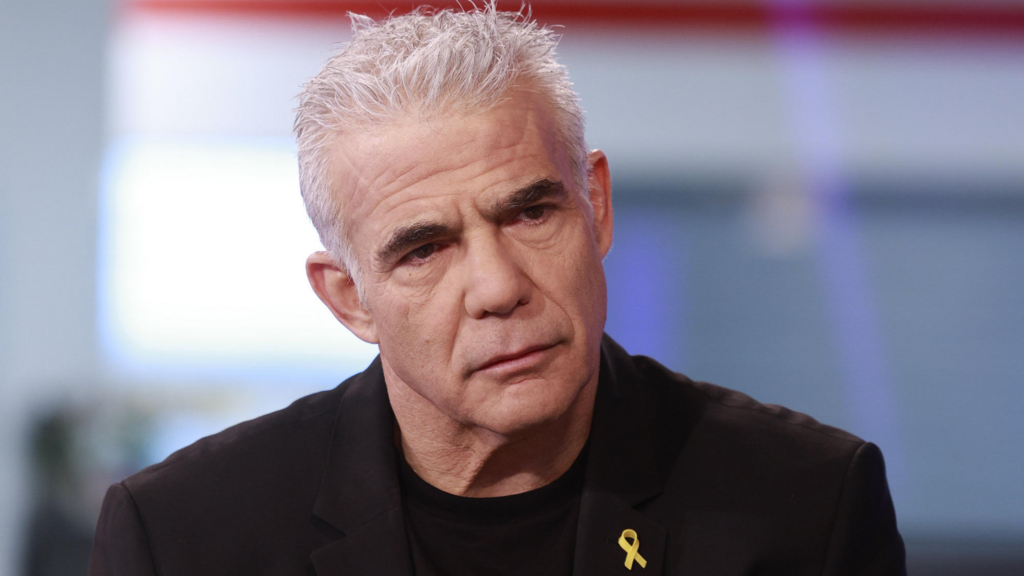Interview with Yair Lapid
(Video: Yaron Sharon, Lior Sharon )
A year after Hamas’ surprise October 7 attack, opposition leader Yair Lapid called on Monday for targeted strikes on Iran’s oil fields in response to Tehran's ballistic missile strike on Israel last week.
Speaking to Ynet as part of a special broadcast marking the one-year anniversary of the massacre, Lapid argued that Iran’s economy, already on the brink of collapse, is its "Achilles' heel."
“There’s a complex discussion with the Americans about this, and I understand why they don’t want a spike in oil prices just before the U.S. elections. But that doesn’t change the fact that Israel has its own interests and perspectives,” Lapid said.
He also stressed the need for broader international cooperation when dealing with Iran’s nuclear facilities, adding that immediate retaliation against Tehran’s economic infrastructure is crucial after what he described as two separate Iranian attacks on Israel.
Lapid’s remarks come nearly a week after the missile strike, which followed increasing hostilities in the region. He criticized the Israeli government for its lackluster response to Iran's actions and said Israel must act swiftly to cripple Iran’s economy, which he called its weakest point.
Reflecting on his warning speech just weeks before the 2023 Hamas attack, Lapid revealed that intelligence reports indicated a “violent, multi-front conflict” was imminent. He claimed Prime Minister Benjamin Netanyahu had access to the same intelligence but failed to act.
"The defense establishment was complacent. They heard all the warnings and chose to ignore them. The entire system was so caught up in the idea that nothing would come from Gaza and that Hamas should be strengthened," Lapid said.
“The government was focused on other things. The intelligence and military failures are beyond belief, and everyone involved should step down. But above all, Hamas felt there would never be a weaker government, one that was so unconcerned with security."
He also dismissed claims that internal protests against the government's judicial reform proposal had contributed to the attack, calling such allegations “dangerous nonsense” and reiterating that it is the government's responsibility to ensure security.
The call for unity and Cabinet snub
Regarding his refusal to join an emergency government with Netanyahu and National Unity Party heads Benny Gantz and Gadi Eisenkot last year, Lapid stood by his decision to stay out, arguing that Netanyahu’s far-right ministers, Itamar Ben-Gvir and Bezalel Smotrich, undermine Israel’s war effort and global standing.
“I was proven right,” Lapid said. “Gantz and Eisenkot’s decision to join was a mistake in my view, and after a few months, they had to leave because no one listened to them. If you leave Netanyahu with the majority, it’s not a unity government. It’s just another Netanyahu government, where the rest are extras and he doesn’t have to listen to anyone.
"{Ben-Gvir and Smotrich] weaken Israel. They’re uncontrollable and drag us to the most extreme places. A big part of the reason why Israel, after suffering the worst blow in its history, is being attacked globally is because of their actions, their statements and the destruction they’re causing."
He renewed his call for Israel to pause the war temporarily to secure the release of hostages, adding, "We need to kill [Yahya] Sinwar, but if pausing the war brings our people home, we should do it."
Lapid concluded by urging for greater unity and cautioning against internal division as Israel continues to face security challenges on multiple fronts.
Get the Ynetnews app on your smartphone:






